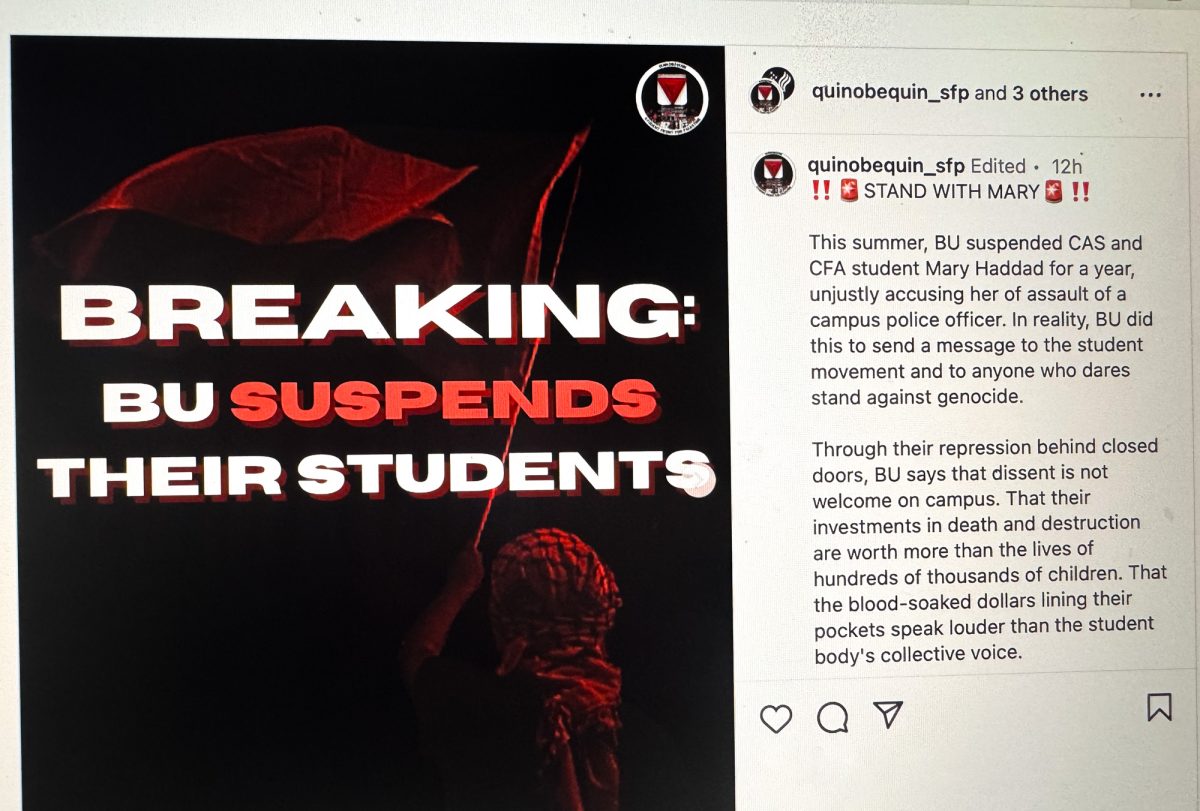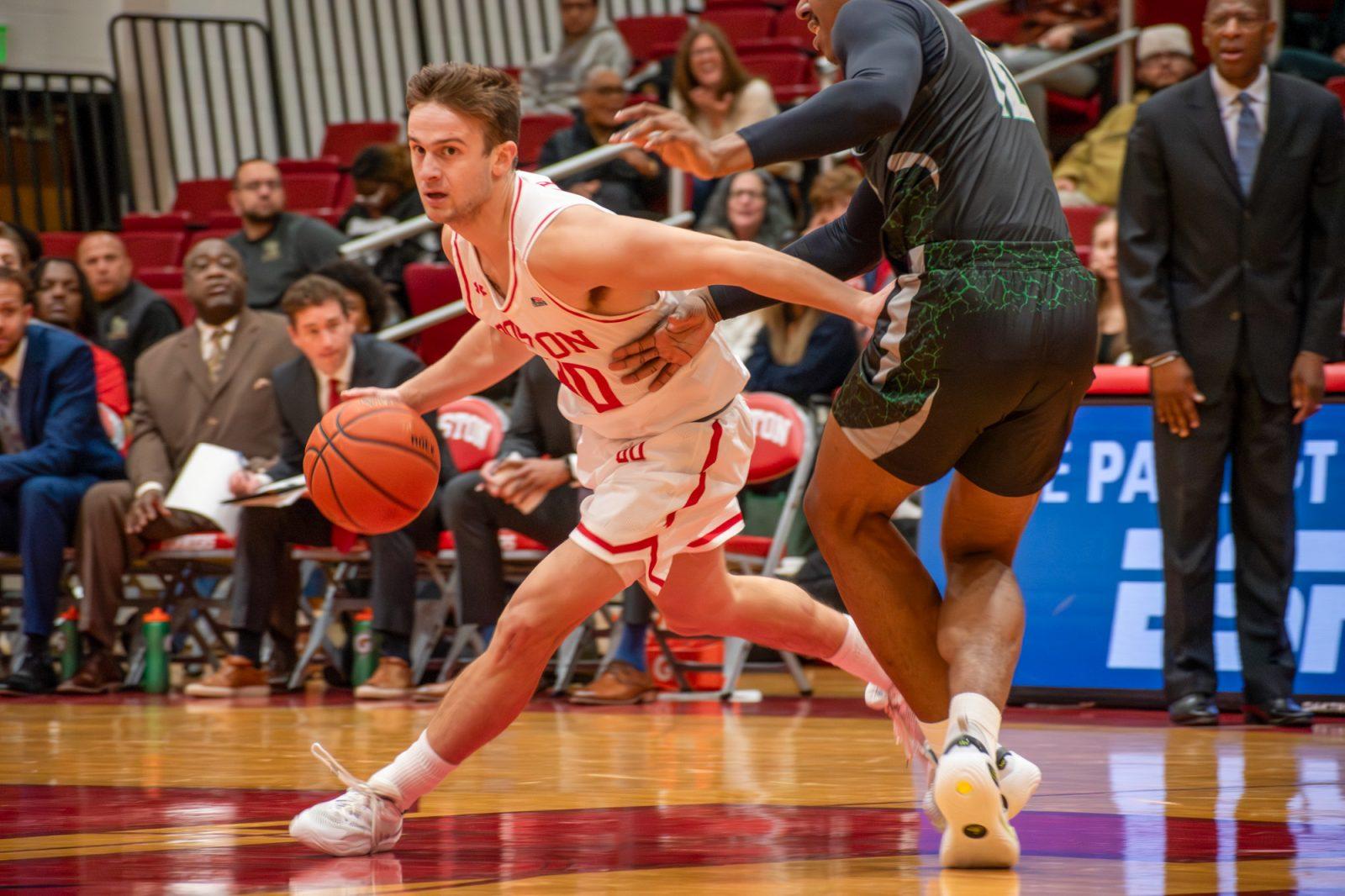Though just two games into the 2011-12 season, the Boston University men’s basketball team has already encountered an old problem, one that plagued them for much of last season even on a run to the NCAA Tournament – poor shooting.
After losses to Northeastern University and the University of Texas, the Terriers have shot 36.3 percent from the field on the season, a figure that includes a 29.8 percent shooting performance in the team’s 82-46 loss at Texas.
Their current shooting percentage ranks the Terriers 283rd among Division I teams, something that first-year head coach Joe Jones feels is a product of both poor shot selection and the ball just not falling into the basket.
“We’re taking some bad ones, we’re not playing side-to-side, inside-out better,” Jones said. “It’s a combination of both.”
Shots not falling through for BU is nothing new as the 2010-11 team ranked among the bottom third of Division I basketball teams with a shooting percentage of 40.2 percent.
Additionally, one of the Terriers’ staples from the past several years – success from beyond the 3-point line – has been noticeably absent in the first two losses of the season as BU has shot an even 17 percent on 3-pointers this season.
Leading returning scorer Darryl Partin has exemplified the Terriers’ struggles as the senior guard has missed 11 of his 13 3-point attempts this season. Of the three players who have made 3-point attempts this season, freshman point guard D.J. Irving has the highest percentage with a 27.3 clip.
For a team that has four active players who shot at least 30 percent on 3-pointers last season, Jones is optimistic his team can turn things around.
“We’ve got some guys that can make them, that are very good shooters,” Jones said. “We’ve got to allow our better shooters to take them, but they have to take good ones. We have to be a little more patient on the offensive end and we need to explore our inside game and play a little more inside-out and move the ball a little bit better and we’ll get better ones.”
Staying in the game
After arriving from Marquette University and sitting out one season due to NCAA rules, forward/center Patrick Hazel became an immediate force on the defensive end for the Terriers last season, averaging 1.8 blocks en route to a spot on the America East Conference’s first-team all-defensive team.
Hazel has displayed a more refined offensive came to complement his defensive prowess in limited minutes, but the problem has been just that – the senior hasn’t been able to stay on the court long enough as he has been in foul trouble early in both of the Terriers’ games.
Against both Northeastern and Texas, Hazel picked up two fouls in the game’s first 15 minutes, forcing him to the bench and limiting his contribution to the BU frontcourt.
Hazel has upped his scoring this season thus far to 7.5 points per game, but Jones said that his starting center will need to work on some defensive fundamentals to continue to improve.
“We’ve been talking about that,” Jones said of Hazel’s foul troubles. “It’s technique and making smarter decisions on the defensive end.”
Baby Steps
As is the case with most freshmen, uncertainty surrounded forward James Kennedy and guard Zach Chionuma entering the season. Would the newcomers be able to contribute immediately? How much work would need to be done to get both players ready for the college game?
Kennedy and Chionuma both were able to see immediate playing time off the bench in the team’s first two games, as Chionuma has averaged 11 minutes per game with Kennedy trailing closely with 10. Both players are averaging two points per game and Kennedy is currently the team’s fourth-leading rebounder with an even four boards per game.
“I think both guys are very talented and they’re in the rotation right now and we’re going to rely on those guys to continue to get better,” Jones said. “Both guys just need game experience, and [we have to] continue to teach them and talk to them about what they need to do to continue to improve.”
Rebound rules
Beyond the tight play and furious comebacks that largely defined BU’s overtime loss to Northeastern, rebounding proved to be one of the game’s deciding factors as the Huskies out-rebounded the Terriers by a 52-32 margin, including a 19-12 disparity on the offensive glass.
From those extra rebounds, Northeastern scored 22 second-chance points to BU’s 11.
However, against Texas two nights later, the Terriers were able to reverse course, albeit in a losing effort, as they out-rebounded the Longhorns 39-30.
After seeing rebounding, one of the team’s self-proclaimed foundations, cost them a game, the Terriers worked to improve on that shortcoming, a strategy that they look to implement for other facets of the game this season.
“I feel like guys have really tried to improve on those things and certainly going into the game against Texas, we talked hard about [how] rebounding was the number one to the game and we did a good job there,” Jones said. “It’s one of those deals where we have to continue to get better and at some point, it’s going to come together.”
























































































































